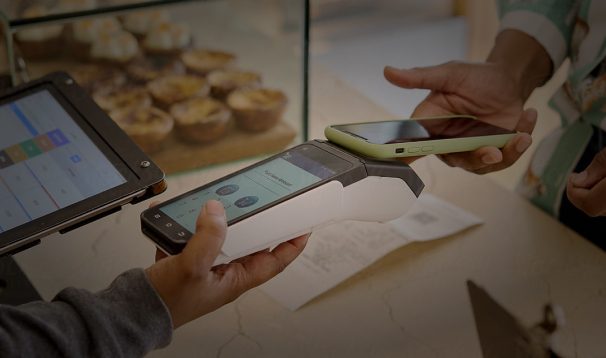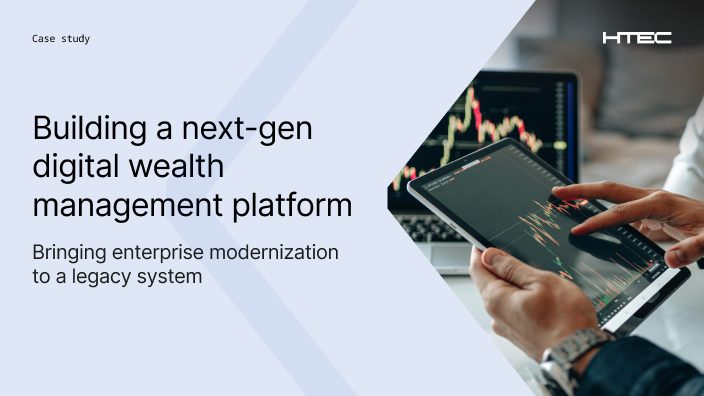There’s no doubt that the pandemic has accelerated digital transformation of telco companies and pushed them past a digital-first tipping point. Telcos are taking on this once-in-a-generation challenge to reinvent their operating model, company culture and partnering approaches.
How can technologies help overcome barriers and make this transition as smooth as possible? What are some critical steps telco companies need to make to modernize legacy infrastructure and build new business models that will get them ahead of the curve?
We grabbed some time to chat with Bojan Šukalo, Director, Engineering and Delivery, at HTEC Group, with extensive experience in the telco space.
H: Can you tell us a little bit about yourself, your professional history, and joining HTEC? What have you learned about your growth through your extensive experience in telco industry? How does it influence everything you’re doing today as a part of HTEC Group?
B: “I started as a networking engineer in a local Telco company almost 15 years ago. Back then, started a silent IT revolution, and IT technology started having a major impact on the telecom. Telcos were, technologically speaking, remarkably diverse and I learned a lot about big information systems and the ways to manage them. The other thing I learned a lot about through experience gained in telecom, for better or worse, is complex organizational structure. At that time, I started thinking about how to organize tech projects in the most efficient and productive way, which later on influenced my growth as a manager.
I joined HTEC Group almost 3 years ago and, so far, this has been quite a ride. At first, it took me some time to adapt to a new mindset even though I had been involved in the world of software development for a year and a half at the time before I left Mtel. It seemed to me that telcos were turning into utility companies. Being of technical background, I did not see my future in this kind of field. HTEC emits a fundamentally different type of work energy and I’m trying to bring that energy to closed and somewhat conservative organizations such as telecoms.”
H: The most notable driving forces of Covid-19 are irreversible changes in consumer behaviour, specifically the shift to online channels. This has caused the telecom industry and enterprises of all sizes to realize the urgent need to transform themselves from telcos to techcos. How can they best respond to industry challenges?
B: “Covid-19 has shown that a strong and reliable infrastructure is of paramount importance. But the covid-related circumstances required constant changes, a high level of adaptivity for the workforce, new, personalized streams of content and services for all the people that stayed at home during the lockdowns. Covid-19 helped speed up the transition to new types of services such as gaming and different types of betting. Consequently, for the first time, telcos started a hybrid model of working, which made things even harder but also more interesting and flexible. Overall, the pandemic shook things up and forced telcos to change their business models in order to respond to the growing customer needs. Many companies are taking a variety of measures to improve customer experience, like offering networking tools for free or at a reduced price. They are also adapting to new ways to sell products and services to customers, with self-service becoming highly important. Taking into consideration all the new technologies and changes, telcos will need to reinvent themselves. They will need to move to open and modern, cloud-native, AI-ready software-based architecture to get ahead of the curve. Cloud could help modernize legacy technologies and encourage innovation, which could open opportunities for novel services. 5G and Edge computing also play a major role in shaping the future of telco, especially in cases where ultra-low latency is important.”
H: New technology is disintermediating CSPs’ relationships with the customer. This is why they urgently need to seize the opportunity to play a meaningful role in customers’ daily digital routines or focus on bringing innovation into the center of the customer experience. What should telcos do to reimagine their CX?
“CPSs should start making things faster, more digital and seamless. Ordering, payment, integration with local infrastructure and traffic should be done more securely. We see a lot of potential in providing digital interfaces to different resources that have not been digitalised so far and now’s the time to jump on this wagon. Telcos have a unique position and unique infrastructure to succeed in achieving these aspirations.”

H: For telco network operators specifically, sustainability has become urgent. Networks must be zero-wait, zero-touch, and zero-trouble. Last year, Deutsche Telecom achieved its climate target of sourcing 100% of the electricity it uses from renewable energies. What steps are necessary to implement a sustainability approach for the entire business?
B: “Green telcos are the norm today, but let’s be honest and say that sustainability has both social and environmental impact across industries, overall. We should turn our attention to solutions that offer a better quality of life and simplicity for the entire society and support projects that are energy neutral, that reduce the carbon footprint. Telcos are increasingly focused on building a sustainable infrastructure and a lot of change can be made here. We need to be particularly mindful of the overall environmental impact of game-changing technologies such as 5G and IoT. Let’s not forget that we already have telcos in space — after Elon Musk’s SpaceX successfully placed all 60 of its first Starlink v0.9 satellites into orbit last week, astronomers and astrophysicists alike have been expressing their concerns over the light pollution they could cause. We need to leverage technologies to build green solutions that would provide our kids with the opportunity to grow in a healthy environment without being afraid of the enormous consequences global warming could have on the environment and life in general.”
H: What do you see as the most important technology and investment trends for telcos in the coming years?
B: “I believe the proliferation of 5G low-latency technology and IoT will be the companies’ main focus in the next couple of years. With a bigger speed of access and low latency, 5G offers us a world of opportunities in the field of gaming or telemedicine. We should not forget that this investment can be fruitless without a proper human interface to attach it to. On top of this, we need to ensure seamless automation processes and make things less complex internally to enable building an organizational structure with high adaptability levels to be able to introduce new services powered by 5G and IoT. The next thing I see as a challenge is security. Protecting this critical infrastructure is imperative. On the software side, the internal elements of telco are increasingly directly exposed to various APIs, so software like various API gateways and billing ‘per API call’ is also a very important trend. In network and infrastructure management, we see that AI is taking hold massively and we believe this is the way forward.”
H: AI-driven autonomous operations are critical to deliver the next generation of services and take advantage of ultra-low latency and massive connectivity. However, while hyperscale Cloud providers like Amazon, Facebook and Google have designed far-reaching AI strategies, CSPs and partners are seeking to understand the business value of AI, where it makes sense to use it, and manage it on a per domain basis. Harmonization of a narrow approach and one that promotes a holistic strategy is a real challenge. So, AI adoption in telecoms raises a question: how can adopters change the structure of current systems and processes to produce desirable outcomes and prevent the undesirable ones?
B: “Well, I suppose the answer is, it depends. AI mainly depends on data we feed it with, and I think that’s where we need to dig deeper for an answer – in data. A holistic approach is only good if we have immense data sources to feed AI with and for that, we need a lot of other elements. We need a strategy, proper data sources and infrastructure to support this. I would opt for a narrower approach but at the same time, I would collect as much data as possible, hoping to get a holistic picture while training AI models on this data in the meantime.”
H: 5G, Cloud, and edge. Which of these technologies, in your view, will have the biggest impact on the future of telco?
B: “5G, edge, in that order. I would not include Cloud on this list. I believe that Cloud can be used mainly as a tool for scaling down the expenses and virtualizing network elements. However, I don’t entirely exclude IaaS, even though I believe that this market is already well-shaped and mainly out of telco’s reach.”
H: How can HTEC Group enable telco companies to ride the next wave of change?
B: “There are a lot of different ways we can help bring innovation in telco. We approach technical problems with an innovative mindset, looking for complex challenges and diving deep into the unknown to move the boundaries of possible and deliver value every step of the way from the discovery to delivery phase. Also, our continuous cooperation with DT can help organizationally, providing an agile way of thinking and merging our experience from software development with infrastructure and network planning. We see possible ways to bring value with big data in IoT, expose internal elements through various API gateways, and leverage our broad technological base and top engineering talent to build solutions that will drive change in the telco space. The time is now. Telco companies should take a bold step, form robust partnerships and take advantage of all the mentioned technologies to accelerate change and deliver new digital services. Our team of experts with deep tech domain experience will guide you on this journey. Only by actively collaborating to find interoperable solutions can we unlock new growth.”
__
To learn more about how we can help you reimagine the future of telco, reach out to our experts or connect with Bojan Sukalo.














